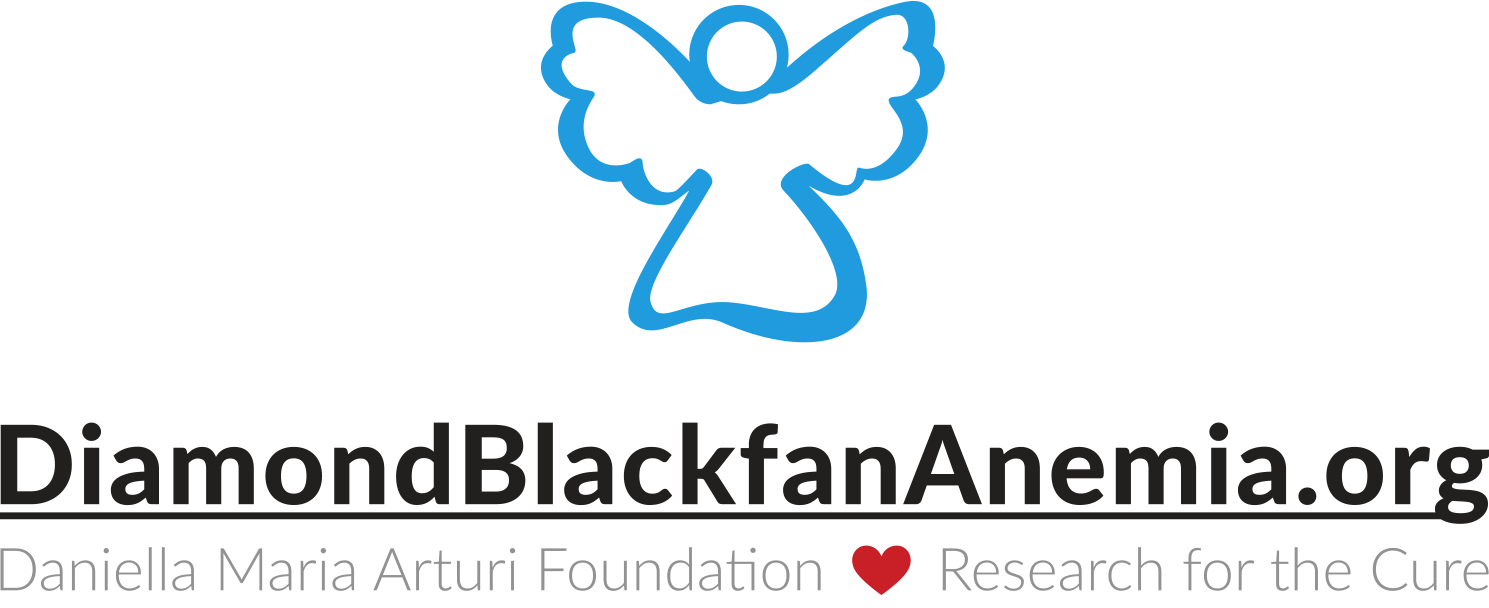Dear DBA Patients and Families:
We are pleased to announce the opening of: “The Use of Novel Therapies to Reconstitute Blood Cell Production and Promote Organ Performance, using Bone Marrow Failure as a Model: A Pilot, Phase II Study of the Amino Acid Leucine in the Treatment of Patients with Transfusion-Dependent Diamond Blackfan Anemia”.
Diamond Blackfan Anemia (DBA) is a rare pure red cell anemia resulting from a failure of the bone marrow to make red blood cells. The anemia may present in infancy, in childhood, or occasionally in adulthood. For some patients a genetic cause for DBA can be found but for others no known genetic mutation is known at this time. Some patients have little or no anemia after treatment with steroids, whereas others may need continuous red blood cell transfusions or steroid therapy for a long time, sometimes for life. Steroids may control DBA in many patients at first, but after some time, the steroids may not work as well anymore. Red cell transfusions have many possible negative side effects, such as iron overload. Iron overload can occur in the liver, heart, and endocrine organs which can cause more complicated health problems such as liver or heart failure, diabetes, thyroid issues, etc.
Purpose of this project
The purpose of this study is to find an alternative treatment for patients with DBA who are dependent on transfusions, to better their quality of life. This study will use an amino acid supplement called leucine. The Department of Defense Telemedicine and Advanced Technology Research Center (TATRC) will fund up to 17 centers throughout the United States to participate in this study. A total of 50 patients with Diamond Blackfan anemia are expected to join this study.
About the study drug, Leucine
Leucine is widely available in health food stores as a food/nutritional supplement. Leucine is the only dietary protein that is able to help the muscles to make more protein. It is also used commonly by athletes to increase muscle mass. It has been used in infants who don’t have normal leucine levels. This medicine comes as in a powder form that is mixed in water or other liquid and swallowed. Mild gastrointestinal upset has been noted in patients who are receiving leucine as a liquid through a vein. This study will include only oral leucine.
Description of procedure
This study is nine months long. The patient will receive a complete physical exam as well as blood tests every 3-4 weeks, during his/her scheduled transfusion. Additionally, blood tests will be monitored every 2 weeks for the first month of the study. The patient will take the leucine 3 times per day, as a capsule, which can be opened so the powder can be mixed in a liquid and will continue the red cell transfusions as routinely scheduled, every 3-4 weeks.
The following are some of the basic inclusion and exclusion criteria for this pilot trial.
Inclusion Criteria
– Diagnostic and supporting criteria for the diagnosis of DBA
– Transfusion dependent
– Age 2 years and older
– Negative pregnancy test
– Signed informed consent
Exclusion Criteria
– Have a know allergy to leucine, isoleucine, norvalie, valine, methylalanine.
– Evidence of kidney or liver dysfunction
– Pregnancy, or plans to become pregnant during duration of trial
Please refer to the website link: http://www.clinicaltrials.gov and enter the search term “Diamond-Blackfan Anemia and leucine” for full eligibility criteria and additional trial information.
CONTACT INFORMATION
Principal Investigator: Dr. Adrianna Vlachos, Cohen Children’s Medical Center of NY
Scientific Co-Investigators:
Monica Bessler, MD, PhD, Children’s Hospital of Philadelphia
George Buchanan, MD, University of Texas Southwestern Medical Center
Steven R Ellis, PhD, University of Louisville
Bertil Glader, MD, PhD, Stanford University
Jeffrey M. Lipton, MD, PhD, Cohen Children’s Medical Center of NY
Zora Rogers, MD, University of Texas Southwestern Medical Center
Colin Sieff, MD, Dana Farber Cancer Institute
Please contact our study nurse, Ellen Muir:
TEL: 1-877-DBA-NURSe (322-6877) or 516-562-1505 FAX: 516-562-1599 Email: emuir@nshs.edu
Also, feel free to contact Dr. Vlachos by email: avlachos@nshs.edu

